
Lancaster Castle is a medieval castle in Lancaster in the English county of Lancashire. Its early history is unclear, but may have been founded in the 11th century on the site of a Roman fort overlooking a crossing of the River Lune. In 1164, the Honour of Lancaster, including the castle, came under royal control. In 1322 and 1389 the Scots invaded England, progressing as far as Lancaster and damaging the castle. It was not to see military action again until the English Civil War. The castle was first used as a prison in 1196 although this aspect became more important during the English Civil War. The castle buildings are owned by the British sovereign as Duke of Lancaster; part of the structure is used to host sittings of the Crown Court.
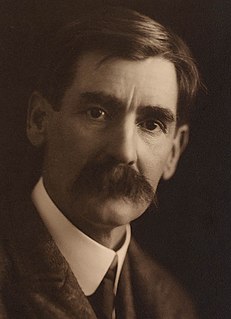
Henry Archibald Hertzberg Lawson was an Australian writer and bush poet. Along with his contemporary Banjo Paterson, Lawson is among the best-known Australian poets and fiction writers of the colonial period and is often called Australia's "greatest short story writer".

Kilmainham Gaol is a former prison in Kilmainham, Dublin, Ireland. It is now a museum run by the Office of Public Works, an agency of the Government of Ireland. Many Irish revolutionaries, including the leaders of the 1916 Easter Rising, were imprisoned and executed in the prison by the orders of the UK Government.

Her Majesty's Prison Pentridge was an Australian prison that was first established in 1851 in Coburg, Victoria. The first prisoners arrived in 1851. The prison officially closed on 1 May 1997.

The Old Melbourne Gaol is a former jail and current museum on Russell Street, in Melbourne, Victoria, Australia. It consists of a bluestone building and courtyard, and is located next to the old City Police Watch House and City Courts buildings, and opposite the Russell Street Police Headquarters. It was first constructed starting in 1839, and during its operation as a prison between 1845 and 1924, it held and executed some of Australia's most notorious criminals, including bushranger Ned Kelly and serial killer Frederick Bailey Deeming. In total, 133 people were executed by hanging. Though it was used briefly during World War II, it formally ceased operating as a prison in 1924; with parts of the jail being incorporated into the RMIT University, and the rest becoming a museum.

The former Grafton Gaol, later called the Grafton Correctional Centre and then Grafton Intake and Transient Centre is a heritage-listed former medium security prison for males and females, located in Grafton, Clarence Valley Council, New South Wales, Australia. The centre was operated by Corrective Services NSW an agency of the Department of Attorney General and Justice of the Government of New South Wales. In its last correctional use, the centre detained sentenced and unsentenced felons under New South Wales and/or Commonwealth legislation. It was added to the New South Wales State Heritage Register on 2 April 1999.

John Lee Thompson was a British film director, active in London and Hollywood, best known for award winning films such as Woman in a Dressing Gown, Ice Cold in Alex and The Guns of Navarone along with cult classics like Cape Fear, Conquest of the Planet of the Apes and The White Buffalo.

Cambridge Castle, locally also known as Castle Mound, is located in Cambridge, Cambridgeshire, England. Originally built after the Norman conquest to control the strategically important route to the north of England, it played a role in the conflicts of the Anarchy, the First and Second Barons' Wars. Hugely expanded by Edward I, the castle then fell rapidly into disuse in the late medieval era, its stonework recycled for building purposes in the surrounding colleges. Cambridge Castle was refortified during the English Civil War but once again fell into disuse, used primarily as the county gaol. The castle gaol was finally demolished in 1842, with a new prison built in the castle bailey. This prison was demolished in 1932, replaced with the modern Shire Hall, and only the castle motte and limited earthworks still stand. The site is open to the public daily and offers views over the historic buildings of the city.

The Maitland Gaol, also known as Maitland Correctional Centre, is a heritage-listed former Australian prison located in East Maitland, New South Wales. Its construction was started in 1844 and prisoners first entered the gaol in 1848. By the time of its closure, on 31 January 1998, it had become the longest continuously-run gaol in Australia. It has since been turned into a museum and is a popular tourist attraction. It was added to the New South Wales State Heritage Register on 2 April 1999.

J Ward originally the Ararat County Gaol, was an Australian prison, of the latter a psychiatric facility to house the criminally insane, located in Ararat, Victoria, Australia.
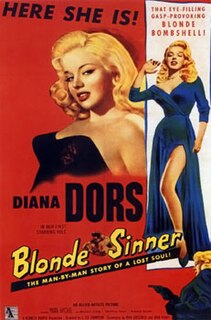
Yield to the Night is a 1956 British crime drama film directed by J. Lee Thompson and starring Diana Dors. The film is based on the 1954 novel of the same name by Joan Henry. The storyline bears a superficial and coincidental resemblance to the Ruth Ellis case, which had occurred the previous year but subsequent to the release of Henry's novel. The film received much positive critical attention, particularly for the unexpectedly skilled acting of Dors, who had previously been cast solely as a British version of the typical "blonde bombshell". The movie was nominated for the Palme d'Or at the 1956 Cannes Film Festival.
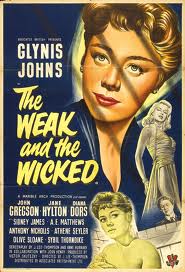
The Weak and the Wicked is a 1954 British drama film directed by J. Lee Thompson based on the autobiographical novel Who Lie in Gaol by his wife, Joan Henry, starring Glynis Johns and Diana Dors.
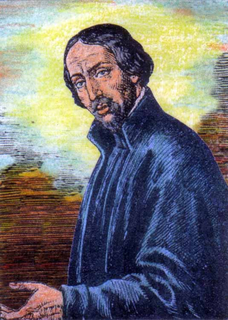
Henry Morse was one of the Catholic Forty Martyrs of England and Wales.
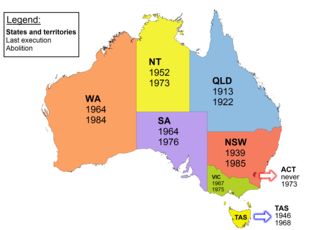
Capital punishment in Australia was a form of punishment in Australia that has been abolished in all jurisdictions. Queensland abolished the death penalty in 1922. Tasmania did the same in 1968. The Commonwealth abolished the death penalty in 1973, with application also in the Australian Capital Territory and the Northern Territory. Victoria did so in 1975, South Australia in 1976, and Western Australia in 1984. New South Wales abolished the death penalty for murder in 1955, and for all crimes in 1985. In 2010, the Commonwealth Parliament passed legislation prohibiting the re-establishment of capital punishment by any state or territory. Australian law prohibits the extradition or deportation of a prisoner to another jurisdiction if they could be sentenced to death for any crime.

The Terror is a 1938 British crime film directed by Richard Bird and starring Wilfrid Lawson, Linden Travers and Bernard Lee. It was based on the 1927 play The Terror by Edgar Wallace. The play had previously been adapted as an American film The Terror in 1928.

Worcester Castle was a Norman fortification built between 1068 and 1069 in Worcester, England by Urse d'Abetot on behalf of William the Conqueror. The castle had a motte-and-bailey design and was located on the south side of the old Anglo-Saxon city, cutting into the grounds of Worcester Cathedral. Royal castles were owned by the king and maintained on his behalf by an appointed constable. At Worcester that role was passed down through the local Beauchamp family on a hereditary basis, giving them permanent control of the castle and considerable power within the city. The castle played an important part in the wars of the 12th and early 13th century, including the Anarchy and the First Barons' War.
Joan Constance Anne Henry was an English novelist, playwright and screenwriter. A former débutante from an illustrious family, she was jailed for passing a fraudulent cheque in 1951 and her best-known works were based on her experiences in prison. She wrote the semi-autobiographical Who Lie in Gaol, filmed as The Weak and the Wicked, and the novel Yield to the Night, the basis for the film starring Diana Dors.
Joseph Adshead (1800–1861) was an English merchant, reformer and pamphleteer from Manchester.

Yield to the Night is a 1954 novel by the British writer Joan Henry. Henry had severed a prison sentence in 1951 for passing fraudulent cheques and had written a bestselling book Who Lie in Gaol based on her experiences. She followed this up with Yield to the Night a fictional story about a woman sentence to death for murder.
William Henry Thompson (1885–1947), known as Harry or W. H. Thompson, was an English radical lawyer closely involved with trade unions, who founded Thompsons Solicitors. From the 1920s he was associated with the Communist Party of Great Britain (CPGB). He was married to Joan Beauchamp, a prominent suffragette.
















